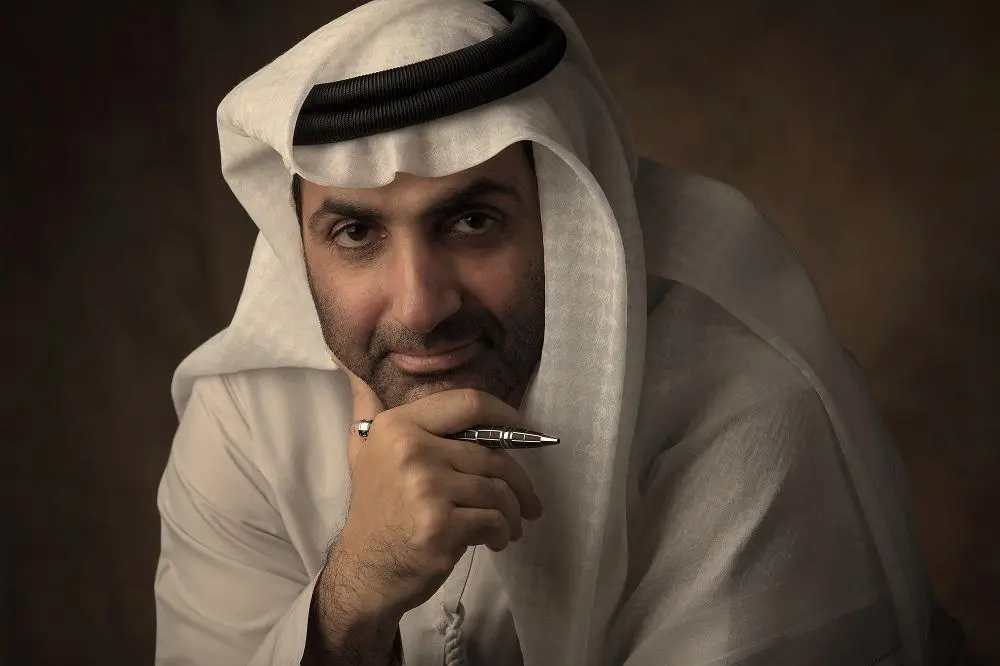PHOTO
Two years ago a crowd of around a thousand people gathered at The Dubai Mall, put on dark glasses and used white sticks to try and navigate their way around the world’s biggest mall. The event was part of a global awareness campaign called White Cane, which coincided with World Blind Day and was designed to highlight what life is like for those who are visually impaired.
At the front of the group was Sheikh Abdul Aziz Bin Ali Al Nuaimi, executive director of Al Ahsan Charitable Association, which organised the event. As the nephew of Sheikh Humaid bin Rashid Al Nuaimi, the ruler of Ajman emirate, Sheikh Abdul Aziz believes that shining a light on initiatives like this is his key role as a member of the royal families in the United Arab Emirates.
Dismissing some common notions about how royalty lives, Sheikh Abdul Aziz says he is like many residents of the UAE, waking up early every day, having breakfast in “regular, non-gold coated dishes”, praying and going about his daily tasks.
But unlike many people he does not wake up at 5 am to head to an office job, but to ponder and address some of the issues that are most important to him, such as the environment and humanitarian work.
“My daily program is different every day… I am not a routine person who has a regular job. No, I am totally different. One day I think, one day I write, one day I inspire, one day I advise, one day I listen and one day I participate, so every day is different than the other,” he told Zawya in an interview in Dubai this month on the sidelines on the Emirates Festival of Literature.
“One day I am in an office, one day I am on a plane, one day I am in a forest, one day I am in the desert, as I am done with the regular work that include sitting in one place… I don’t work, I create,” he added.
Home for Sheikh Abdul Aziz is Ajman, the smallest of the UAE’s seven emirates. Spanning over 260 square kilometres along the country’s west coast, the rural setting has inspired him a passion for environmental issues, leading him to being dubbed ‘The Green Sheikh’.
“Environment is important to everyone,” said Sheikh Abdul Aziz, who earned a PhD in clean energy production and industrial eco-systems from Australia’s Griffith University in 2007.
Sheikh Abdul Aziz, who also holds a bachelor’s degree in chemical and petroleum engineering and a master of science in environmental management, has authored several books on his environmental and humanitarian topics, including one called ‘Our Beautiful Environment’.
The UAE, which has one of the largest carbon footprints in the world, has surpassed most of its Arab counterparts in setting a clean energy benchmark for the oil-producing Gulf region. Read more here:
Inspiring hope
Through his books and charity work, Sheikh Abdul Aziz wants to inspire change in the mindset of young Arabs, particularly in a part of the world that has been rocked by civil war and upheaval.
“We need to address the subject of hope,” he said, adding that helping those in conflict zones like Yemen, Syria and Iraq is the top priority.
The wars in Syria and Iraq have killed at least 1.5 million civilians and left millions of others homeless.There are 4.9 million registered Syrian refugees, according to the most recent data posted on Syria Regional Refugee Response, a website linked to the United Nations Refugee Agency (UNHCR).
Sheikh Abdul Aziz hinted that the ruler of Dubai, and those of other emirates, could be working on a “major Arab project that they have not yet announced”.
“A project that would attract young Arab talents especially those from the politically troubled countries to the Emirates, a global project. I think our sheikhs have a vision for manufacturing hope,” he added, without giving any details of what this project may be.
Last month, Dubai ruler Sheikh Mohammed Bin Rashid Al Maktoum announced a new government job opening through his official Twitter account for “hope makers” in the Arab world, a role which comes with a benefits package worth 1 million dirhams ($272,300). Read more here:
Whatever the project, it will surely attract the attention of Sheikh Abdul Aziz if it involves hope and building a sustainable future for new generations.
(Editing by Shane McGinley)
© Zawya 2017





















